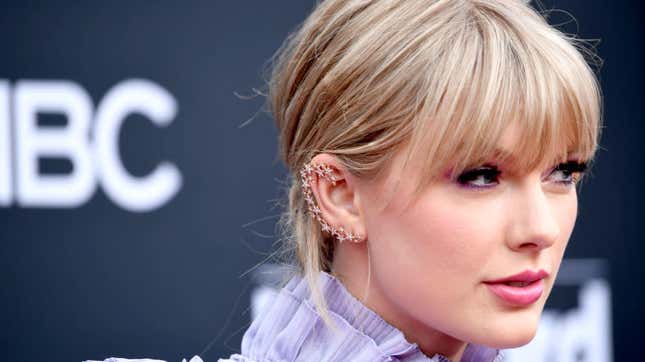

“For years I asked, pleaded for a chance to own my work,” Taylor Swift wrote in her Tumblr post about the sale of her masters and former label Big Machine Records to Scooter Braun, who she calls a “bully.” Some can read the post as merely a call-out of Braun and Big Machine Records owner Scott Borchetta—one which has already attracted support and ire from fellow celebrities (Justin Bieber, Halsey, Selena Gomez, etc.) treating it like a flaming feud. But aside from what the receipts say (did Swift know or not know about this news? Did she or did she not receive a good faith deal to buy her masters?), Swift’s post illuminates a struggle so many artists face as their careers climb: widely standardized shitty deals that keep artists from owning their work.
Taylor Swift is something like the Sheryl Sandberg of pop music. She has propelled her career from tiny country artist into pop machine over the past few years with little shame when it comes to corporate collaborators, inking deals and sponsorships with brands like Target, AT&T, Apple Music, NYC & Company, and for her Reputation album cycle, confusingly, UPS. She is not the one to surprise drop an entire album, either, playing by traditional distribution rules with all the right singles and videos, even announcing a song release on ABC during the NFL draft. Her career, and even the sound of her music, has expanded with such commercialism that it seems that currently Swift is less interested in being an artist and more interested in being the biggest brand she can be.
-

-

-

-

-

-

-

-

-

-

-

-

-

-

-

-

-

-

-

-

-

-

-

-

-

-

-

-

-

-

-

-

-

-

-

-

-

-

-

-








































